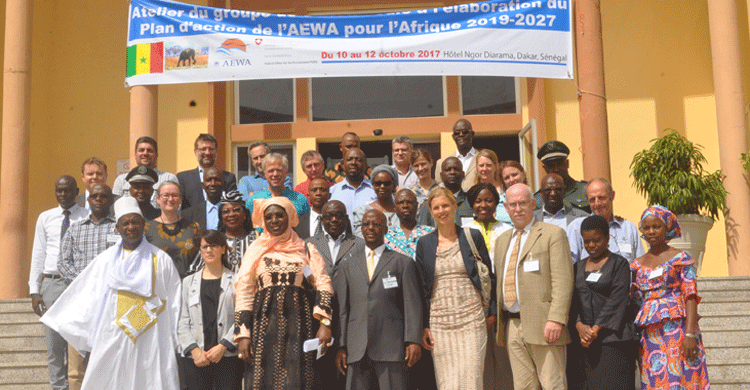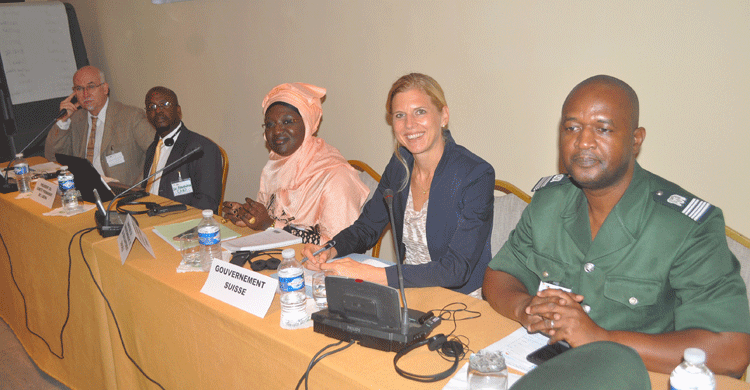Planning for Action for the Next Decade of Waterbird Conservation in Africa

Participants of the workshop
Bonn, 21 October 2017 - The foundations of the AEWA Plan of Action for Africa (PoAA) 2019-2027 were laid at a successful workshop in Dakar, Senegal which took place at the Ngor Diarama Hotel from 10 to 12 October.
The Working Group for the development of the plan identified and discussed the key issues to be captured in the PoAA 2019-2027 which will define the next decade of migratory waterbird conservation in Africa. The three-day workshop was attended by some 30 participants representing the African Contracting Parties, the Standing Committee and Technical Committee, non-African Parties, AEWA partner organizations as well as the UNEP/AEWA Secretariat.
The workshop was officially opened by Ms. Ramatoulaye Dieng Ndiaye, Secretary General at the Senegal Ministry of Environment and Sustainable Development, with addresses from the AEWA Executive Secretary, Dr Jacques Trouvilliez, the Chair of both the AEWA Standing Committee and the PoAA Working Group, Dr Barirega Akankwasah and the Deputy Head of Mission at the Embassy of Switzerland to Senegal, Ms. Rea Gehring. The speakers highlighted the importance of the PoAA 2019-2027 for strategic planning for the effective conservation of migratory waterbirds and the key role the Working Group was playing in developing the plan.
Workshop participants subsequently embarked on an intensive programme of presentations, case studies, brainstorming and discussion, both in interactive group work and plenary sessions.

The first two days of the workshop were dedicated to reviewing the targets and activities laid out under the five objectives of the draft AEWA Strategic Plan 2019-2027, which is the guiding document of the AEWA PoAA. The majority of the targets and activities of the draft AEWA Strategic Plan were assessed as relevant for Africa and corresponding key actions for the conservation of AEWA species and their populations were defined. These actions will contribute to promoting sustainable use of populations along their flyways, establishing and maintaining a network of protected and well-managed sites of importance as well as adequate habitat in the wider environment and improving knowledge and capacity for migratory waterbird conservation. Another key outcome was a number of ideas which will provide the basis for future project concepts aimed at addressing key conservation issues along the East Atlantic, Black Sea/Mediterranean and East Africa/West Asia Flyways as well as intra-African flyways. These will build on existing and planned projects along these flyways.
On the last day of the workshop, major obstacles to migratory waterbird conservation in the region were discussed, including limited human and financial resources as well as institutional limitations. Recommendations for addressing these resource-related challenges for the implementation of the AEWA PoAA over the period 2019-2027 were captured. The Working Group also highlighted the need to address global and regional strategies and policies across sectors including the Strategic Plan for Migratory Species, CBD Aichi Targets, the Ramsar Strategic Plan or the African Union’s Agenda 2063 Action Plan.
An excursion to Dakar’s Technopole research centre and wetland site gave participants insights into the management and challenges relating to this urban wetland which is home to a rich diversity of flora and fauna, including many bird species.
The UNEP/AEWA Secretariat would like to thank the Governments of Senegal and Switzerland (through the Federal Office for the Environment, FOEN) for their generous support towards the organization of the workshop.
Last updated on 28 November 2017








